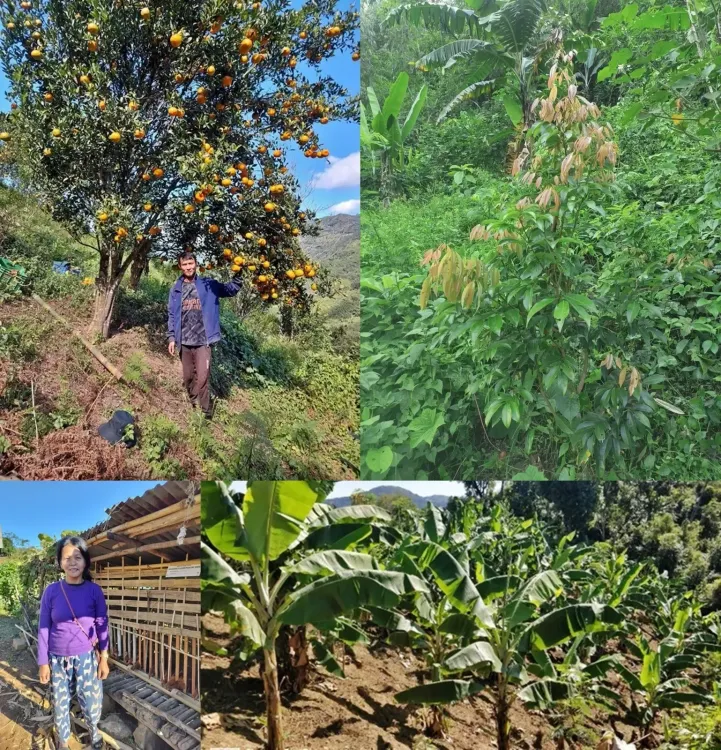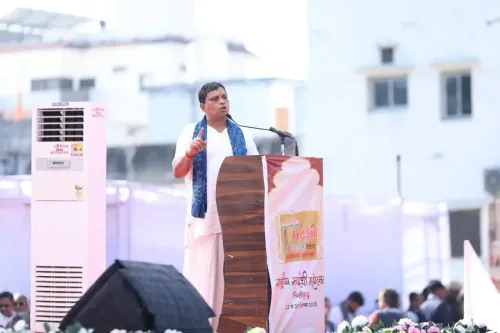Mizoram: NABARD's Key Initiative to Empower Tribal Communities and Combat Unscientific Farming Practices

Aizawl, Dec 17 (NationPress) The NABARD has been executing TRIBES (Tribal Resilience Initiative for Building Environmentally Sustainable Livelihoods), a key initiative aimed at empowering tribal communities in Mizoram and addressing the issue of unscientific shifting cultivation, officials reported on Tuesday.
In Mizoram, where shifting cultivation (locally referred to as jhumming) is deeply embedded in Mizo culture, unscientific agricultural practices have led to environmental challenges due to shorter fallow periods and decreasing land productivity.
Of Mizoram’s 1.2 million population, a staggering 94.4 percent are tribal members.
A NABARD official indicated that they have sanctioned 13 TRIBES projects, showcasing their commitment to transforming the livelihoods of tribal individuals within the state.
Among these 13 projects, seven have been successfully completed, while six are still in progress, with a total of approximately 19 crore sanctioned, and nearly Rs 17 crore disbursed under these projects.
The project promotes a diverse array of crops, including orange, mango, litchi, areca nut, papaya, and banana, alongside turmeric, garden pea, and pineapple as intercrops.
Moreover, for landless farmers, units for piggery and poultry have been established to provide varied livelihood opportunities, the official noted.
The projects are carried out through Project Facilitating Agencies (PFAs) such as NEIDA, World Vision India – CADP, CODNERC, and Angel Business Promoters of Mizoram.
To ensure effective execution and outcomes, the projects are meticulously monitored at the district level by DDMs and by consultants from NABARD Consultancy Services (NABCONS).
The official emphasized that for holistic development, it is essential to integrate tribals by enhancing their livelihoods.
NABARD is actively involved in fostering tribal livelihoods through various promotional and skill enhancement programs.
A flagship program of NABARD for sustainable tribal livelihoods is the 'wadi' model of tribal development, which has evolved with support from national and international development agencies, ultimately leading to the establishment of a dedicated fund known as the Tribal Development Fund (TDF) by NABARD.
Building on the success of its Adivasi Development Programmes, NABARD initiated a nationwide effort to replicate the orchard model, resulting in the creation of the Tribal Development Fund (TDF) in 2003-04.
The TRIBES projects are being executed across seven districts—Aizawl, Champhai, Khawzawl, Lunglei, Lawngtlai, Mamit, and Serchhip—encompassing 90 villages and positively impacting the lives of over 19,250 families.
According to the official, the initiative has successfully cultivated more than 3,500 acres of land, significantly enhancing agricultural productivity and sustainability.
To combat shifting cultivation, the TRIBES initiative has tackled challenges by introducing land development programs, sustainable farming techniques, and capacity-building efforts.
This has empowered tribal communities to diversify their crops and adopt practices that boost productivity while conserving the environment.
NABARD has been a pioneer in designing and executing programs and projects focused on natural resources management and sustainable livelihoods.
Tribal communities residing near forests are highly vulnerable and rely heavily on forest resources. Improving livelihood opportunities for tribal families will reduce their dependence on forests, thereby preserving forest resources and enhancing their standard of living and quality of life, the official asserted.










